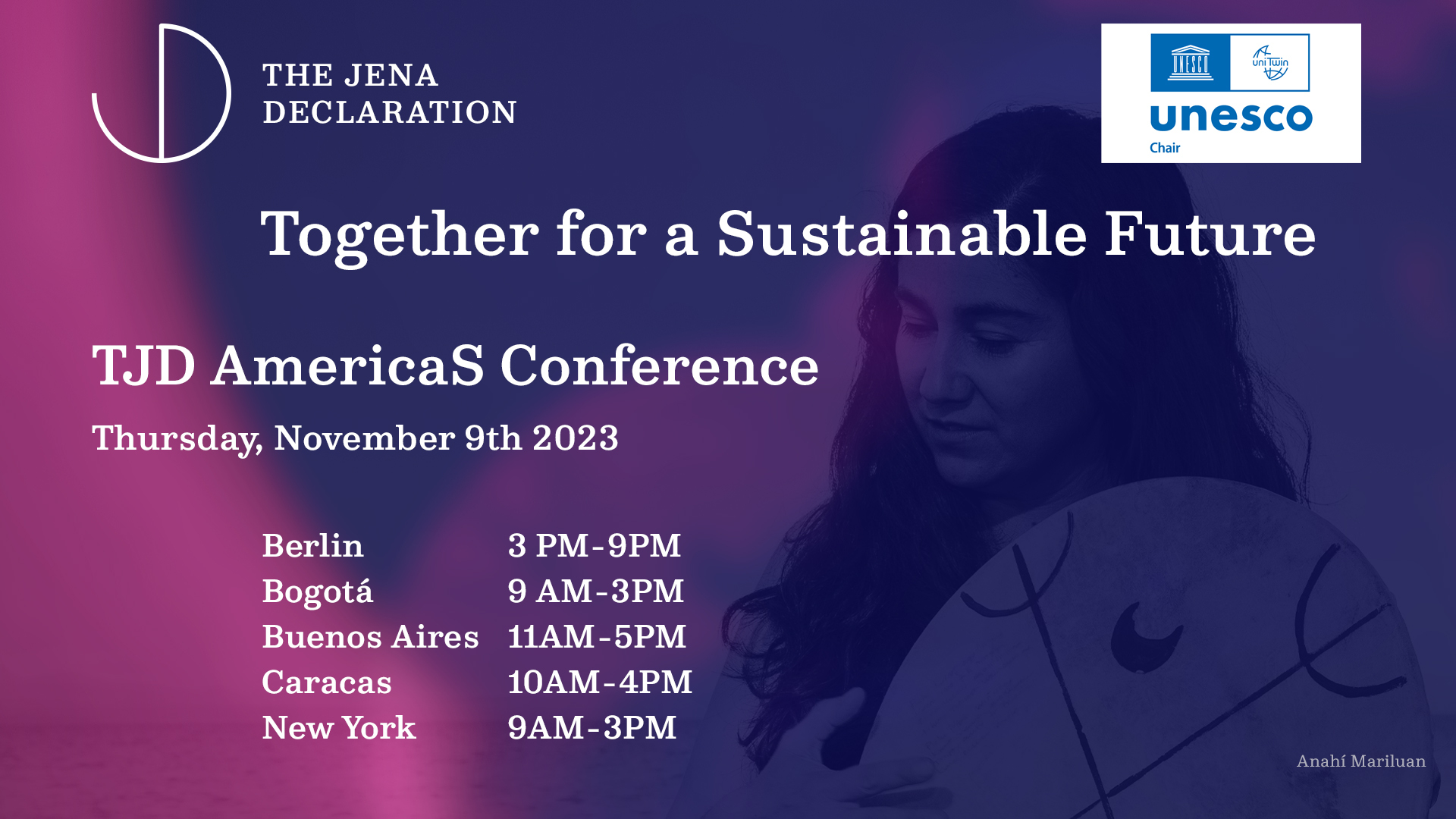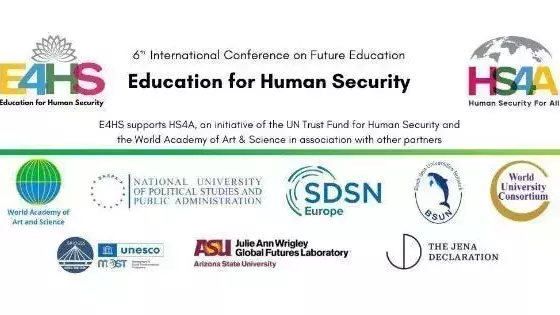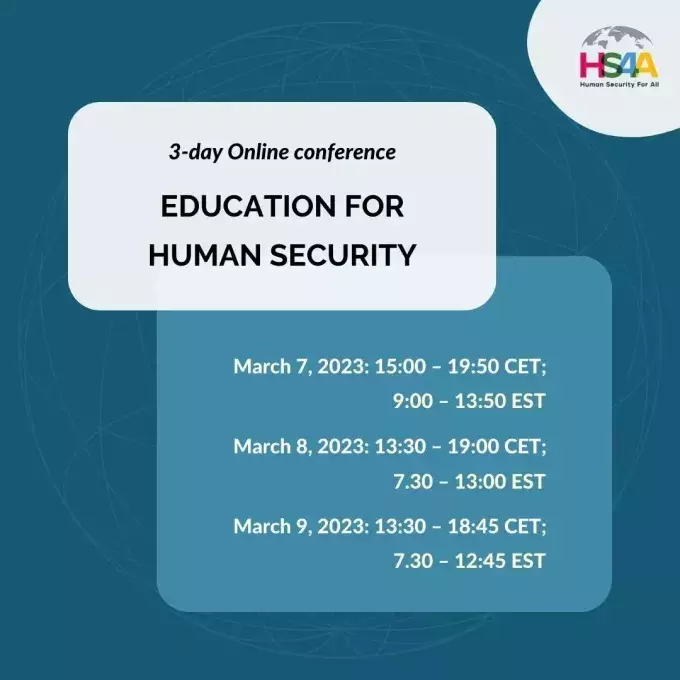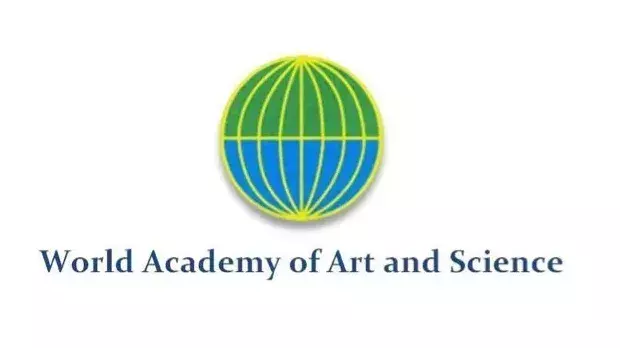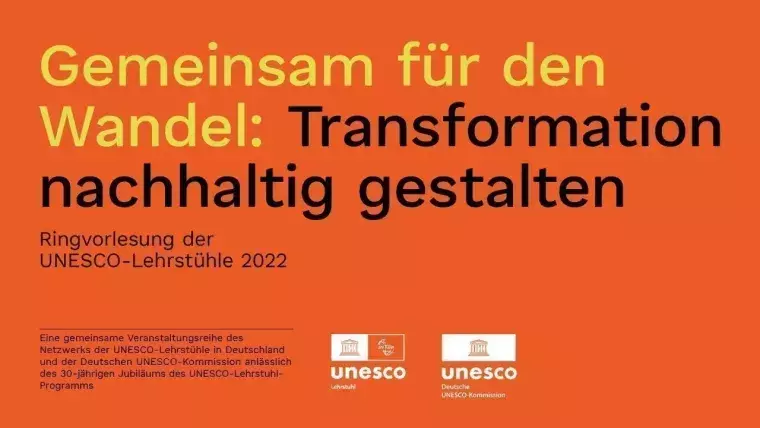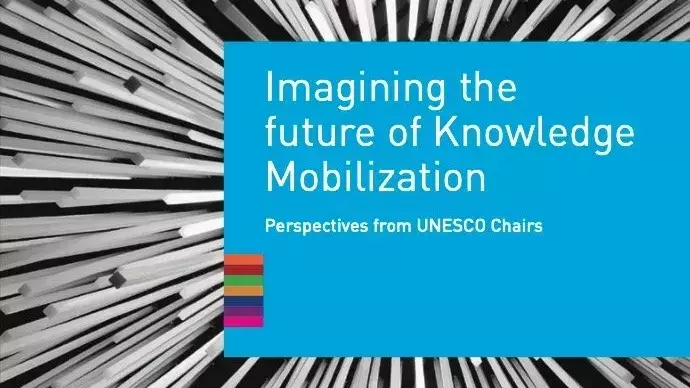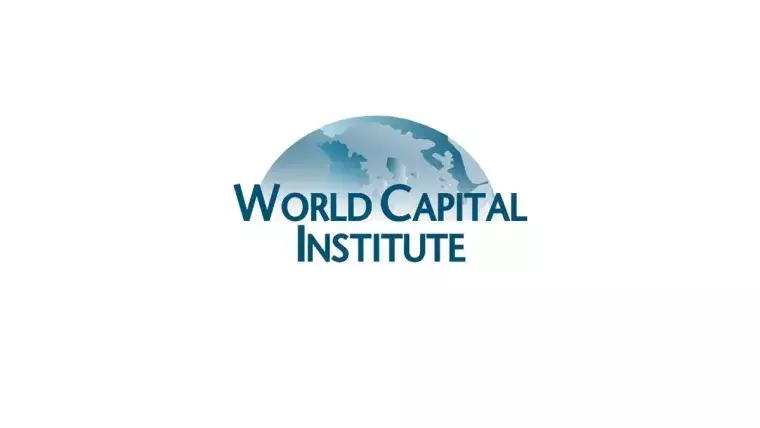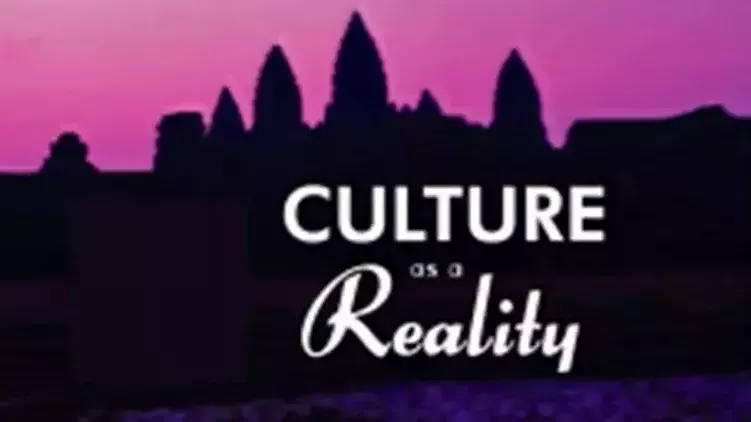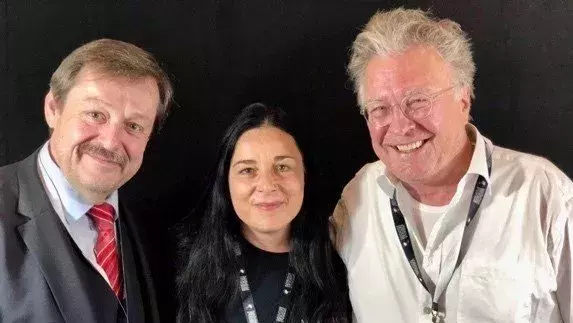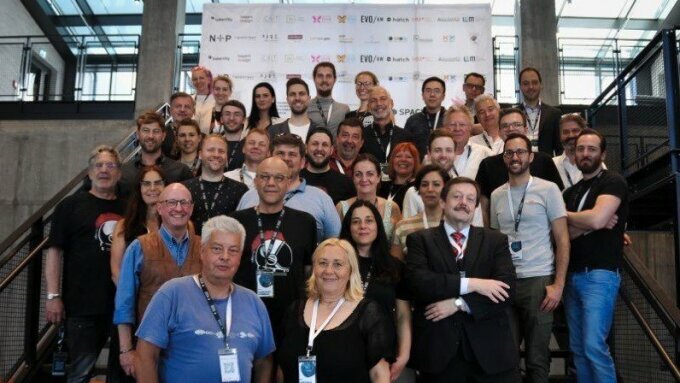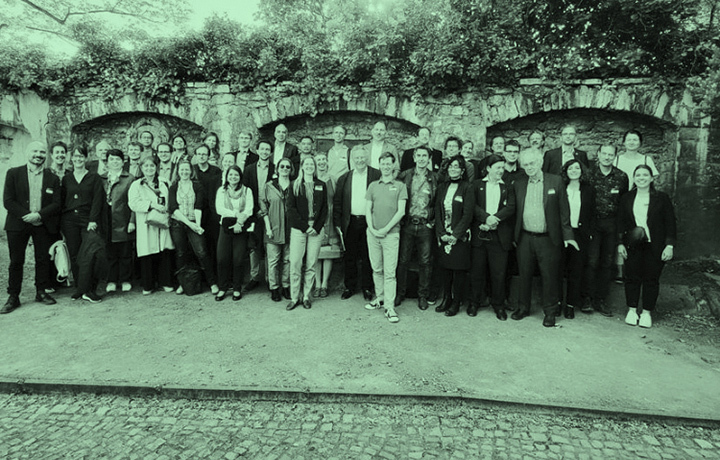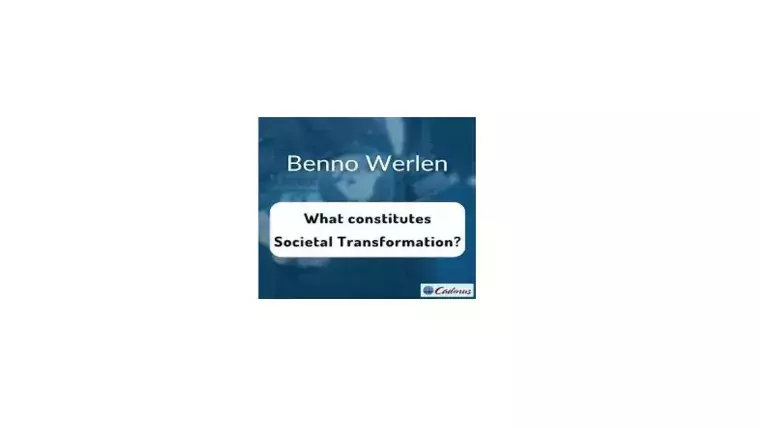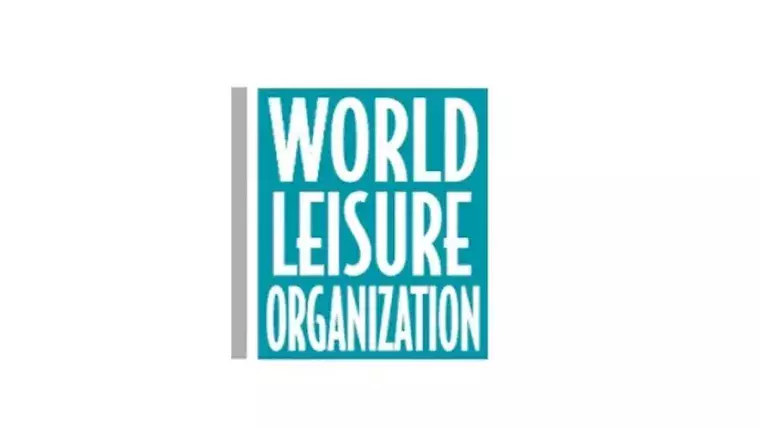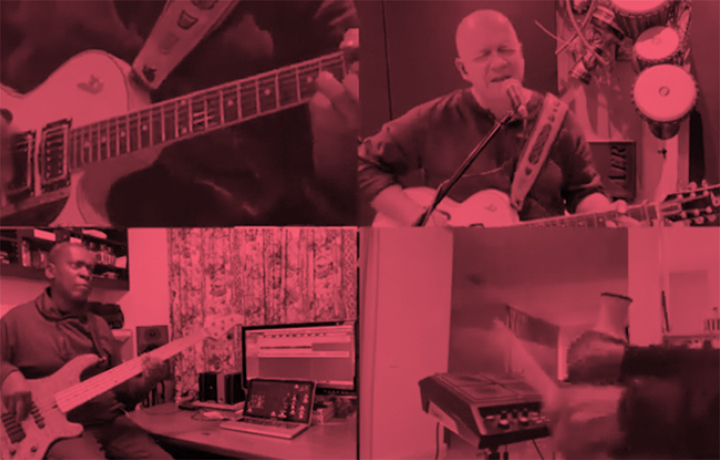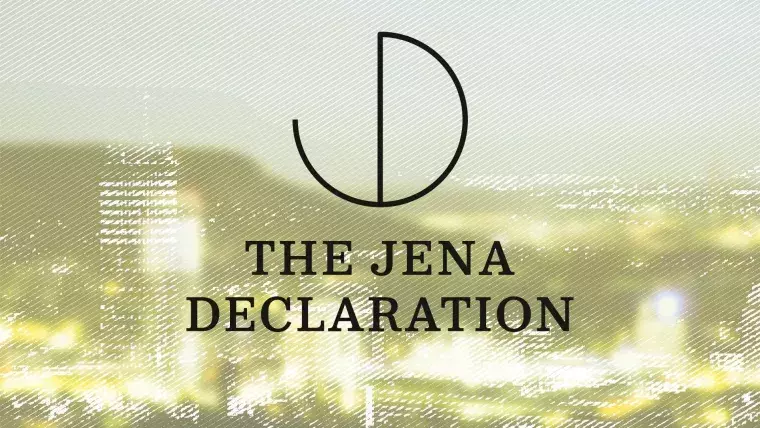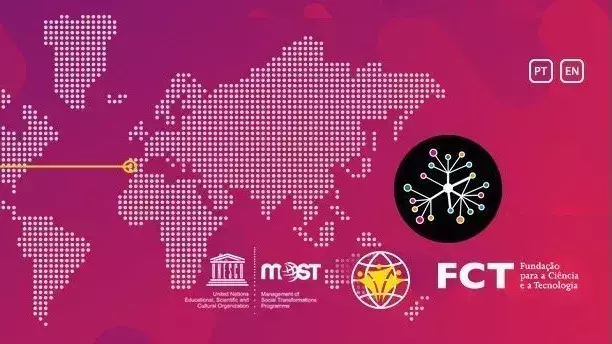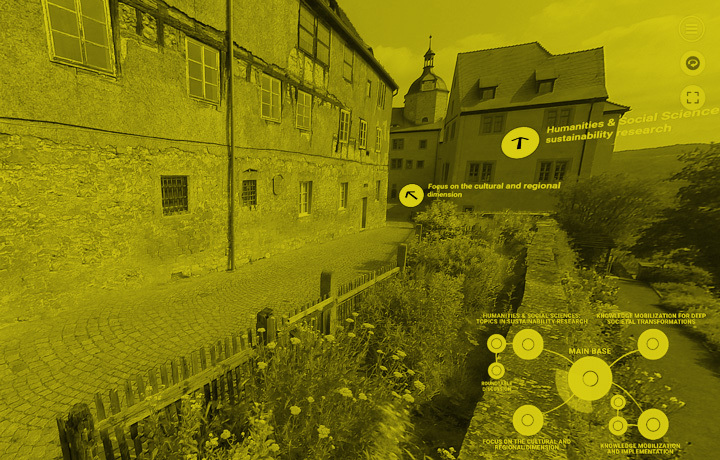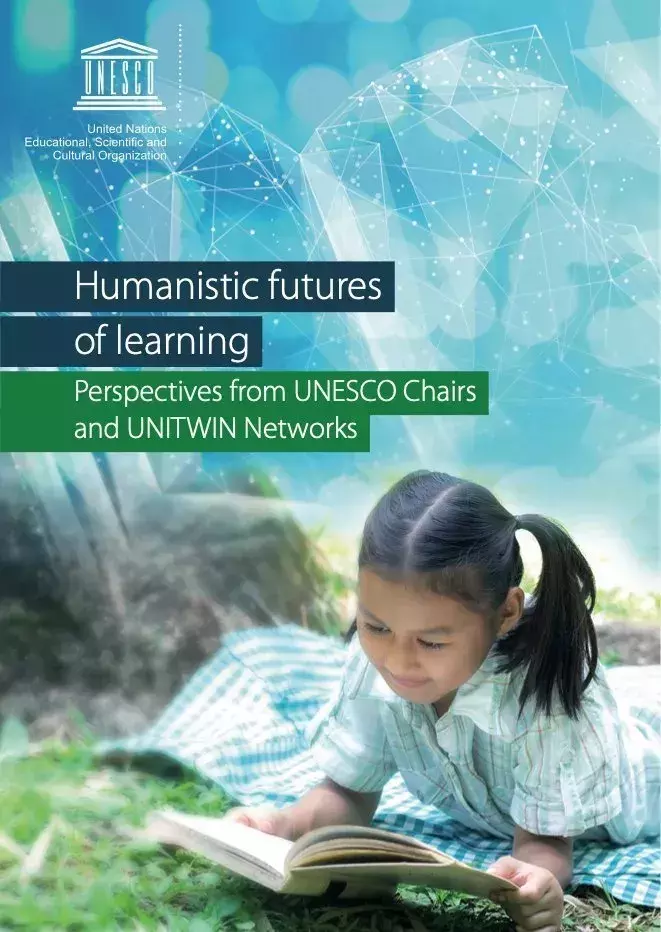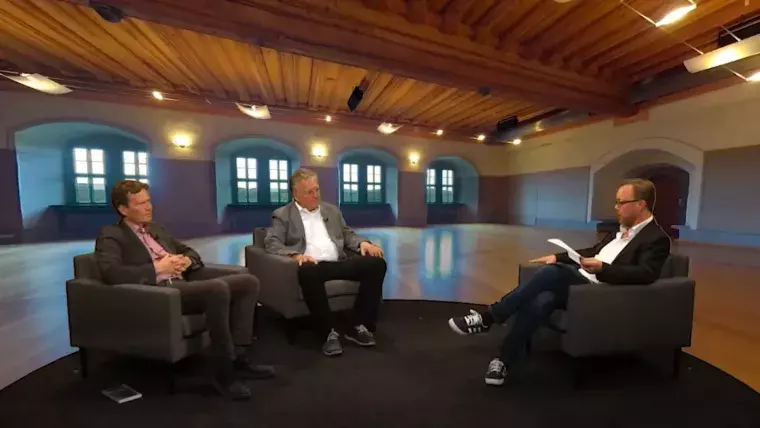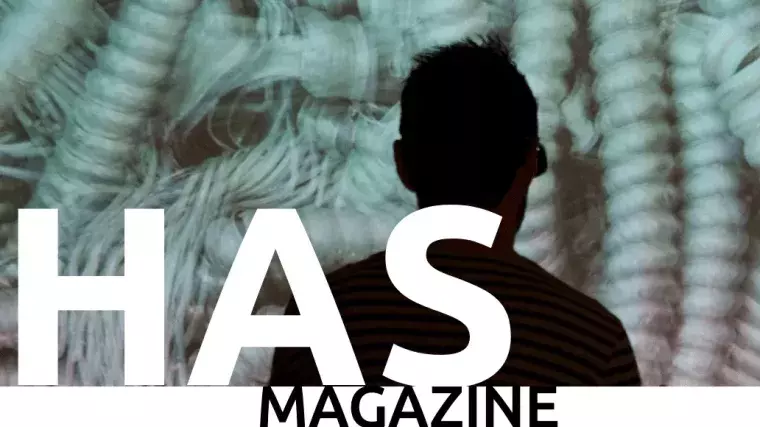Thursday, November 9th 2023
Simultaneously translated online conference
The TJD AmericaS conference is the first of a series of continental events. All of those conferences will call to listen first to the citizens before pushing them to engage in the global quest for sustainability. Each conference offers a platform where citizens from different parts of the world and of different cultures can express their understanding of sustainability.
The Jena Declaration (TJD) calls for a double shift of paradigm of the so far dominant sustainability policies. Endorsed by founding partners like The Club of Rome, the World Academy of Art and Science, the International Council of the human Sciences, and many others, it is calling first to change priority from a top-down to a bottom-up strategy, supporting actions from the ground. And secondly from a nature to society kind of argument towards culture-nature logic. This change of paradigm implies the claim to take the cultural richness and specific regional conditions as the main orientation for roads of humanity to global sustainability.
In the present TJD AmericaS conference of the 9th of November voices from the Patagonian Mapuche Culture, a women’s empowerment movement in the Caribbean, participants in the Colombian peace building process, representatives of indigenous religion and culture, an action group for clean water for all and artists for sustainability from Broadway in New York will explore new dimensions of sustainability.
Videos english
Introduction by Prof. Benno Werlen
Founder, The Jena Declaration; UNESCO Chair on Global Understanding for Sustainability
Sustainability and Wisdom – Learning from Mapuche Culture
Introduction and Moderation: Prof. Claudia Hammerschmidt, Chair of Romance Studies
• Anahi Mariluan – Mapuche Singer and CONICET Research Fellow
• Liliana Ancalao – Mapuche Poet
• Adrián Moyano – Writer and Journalist
• Sanmartiniano Painefil – Space for Mapuche Articulation and Political Construction
• Jorge Spindola – Writer and Member of the intercultural Mapuche collective Tukulpan
• Viviana Ayilef – Poet and Member of the Intercultural Mapuche collective Tukulpan
Carlos Alvarez, Vice-President, The Club of Rome: A second chance on Earth
Empowering Women for a Sustainable Future
• Sian Young – Founder & CEO, Siel Environmental Service Limited, Trinidad & Tobago
• Tamu Petra Brown – Creator of the HER Business Model, St. Kitts & Nevis
• Kevin Howell – CEO, Anchor Group Corp, Jamaica & New York
Clean Water as key for a healthy Future
Introduction and Moderation: Cheryl Perdomo, M.Sc., Senior Sustainability Strategist
• Raúl González Acuña, M.Sc. – CEO & Founder Easy Clean Water
Spirituality and sustainability: Learning from tradition for the Future
• Father Pai Pote & Artist Group from Santo Amaro, Bahía, Brazil
Garry Jacobs, President, World Academy of Art and Science: Human Security for All
Colombian Peace Process and Social Sustainability
• Prof. Dr. Alejandro Pimienta Betancour – Instituto de Estudios Regionales, Universidad Antioquia, Medellín, Colombia
• Prof. Dr. Jose Fernando Serrano – Facultad de Ciencias Sociales, Universidad de Los Andes, Bogotá, Colombia
• Dr. Natalia Ouiñones – Co-Founder & Research Director Corporación Dunna, Bogotá
Prof. Hartmut Rosa, Social Scientist: Resonance and Sustainability
Sustainability, Music and Theater – Lessons from Broadway
Introduction and Moderation: Howard Blumenthal, Founder, Kids on Earth
• Andrea Green – Music Composer and Performing Arts Educator
• Henry Nevison – Movie Director, Editor, Producer
• Anika Larsen – Broadway Music Composer and Performing Arts Educator, Member, Broadway Green Alliance
• Prof. Andrea Varga – Associate Professor of Theatre Design, Sustainability Faculty Fellow, State University of New York (SUNY)
Closing remarks: Prof. Benno Werlen
vídeos en español
Introducción: Prof. Benno Werlen
Fundador, La Declaración de Jena; Cátedra UNESCO de Entendimiento Global de la Sostenibilidad
Sostenibilidad y Sabiduría – Aprendiendo de la Cultura Mapuche
Introducción y moderación: Prof. Claudia Hammerschmidt, Cátedra de Estudios Románicos
• Anahi Mariluan – Cantora mapuche e investigadora becaria CONICET
• Liliana Ancalao — Poeta mapuche
• Adrián Moyano – Escritor y periodista
• Sanmartiniano Painefil – Espacio de Articulación y Construcción política mapuche
• Jorge Spindola – Escritor y miembro del colectivo intercultural mapuche Tukulpan
• Viviana Ayilef – Poeta y miembro del colectivo intercultural mapuche Tukulpan
Carlos Alvarez, Vice-Presidente, Club de Roma: Una segunda oportunidad sobre la Tierra
Capacitar a las mujeres para un futuro sostenible
• Sian Young – Fundadora & CEO, Siel Environmental Service Limited, Trinidad y Tobago)
• Tamu Petra Brown – Creadora del Modelo Empresarial HER, San Cristóbal y Nieves
• Kevin Howell – CEO, Anchor Group Corp, Jamaica y Nueva York
Agua limpia como clave para un futuro saludable
Introducción y moderación: Cheryl Perdomo, M.Sc., Estratega superior de sostenibilidad
• Raúl González Acuña, M.Sc. – CEO y Fundador de Easy Clean Water
• Fundación Potabilis
Espiritualidad y sostenibilidad: Aprender de la tradición para el futuro
• Padre Pai Pote y Grupo de artistas de Santo Amaro, Bahía, Brasil
Proceso de paz en Colombia y sostenibilidad social
• Prof. Dr. Alejandro Pimienta Betancour, – Instituto de Estudios Regionales, Universidad Antioquia, Medellín, Colombia
• Prof. Dr. José Fernando Serrano, – Facultad de Ciencias Sociales, Universidad de Los Andes, Bogotá, Colombia
• Dra. Natalia Ouiñones — Cofundadora y Directora de Investigación Corporación Dunna, Bogotá
Prof. Hartmut Rosa, Científico Social: Resonancia y sostenibilidad
Sostenibilidad, música y teatro – Lecciones de Broadway
Introducción y moderación: Howard Blumenthal, Fundadora, Kids on Earth
• Andrea Green – Compositora Musical y Educador de Artes Escénicas
• Henry Nevison – Director de Cine, Editor, Productor
• Anika Larsen – Compositora Musical de Broadway y Educadora en Artes Escénicas, Miembro de Broadway Green Alliance
• Prof. Andrea Varga – Diseñadora de vestuario, Profesora Asociada de Diseño Teatral, Becaria de la Facultad de Sostenibilidad de State University of New York (SUNY)

